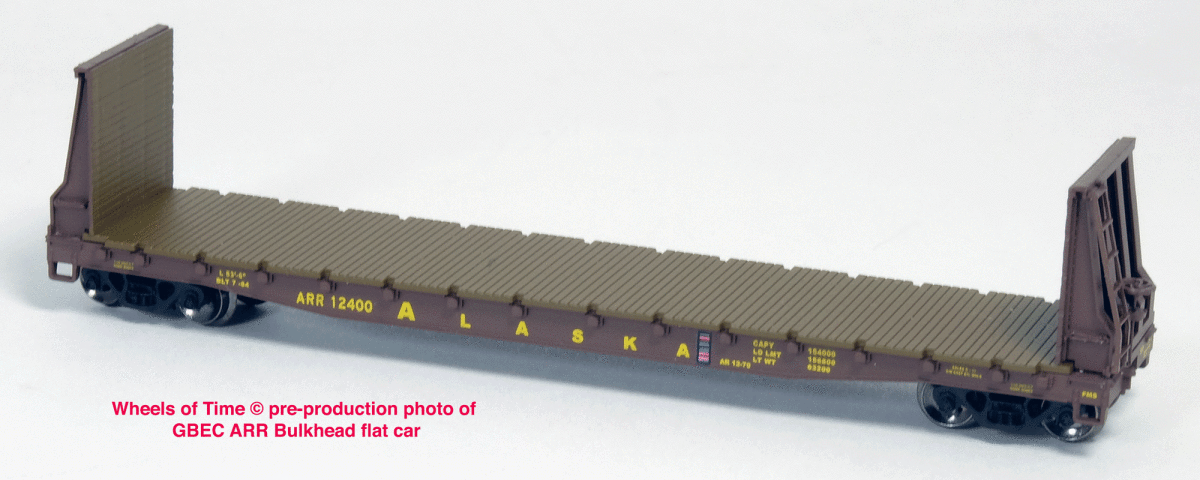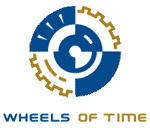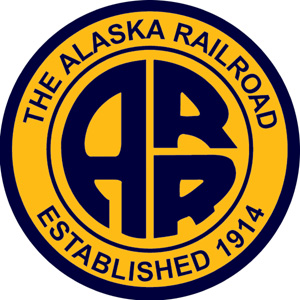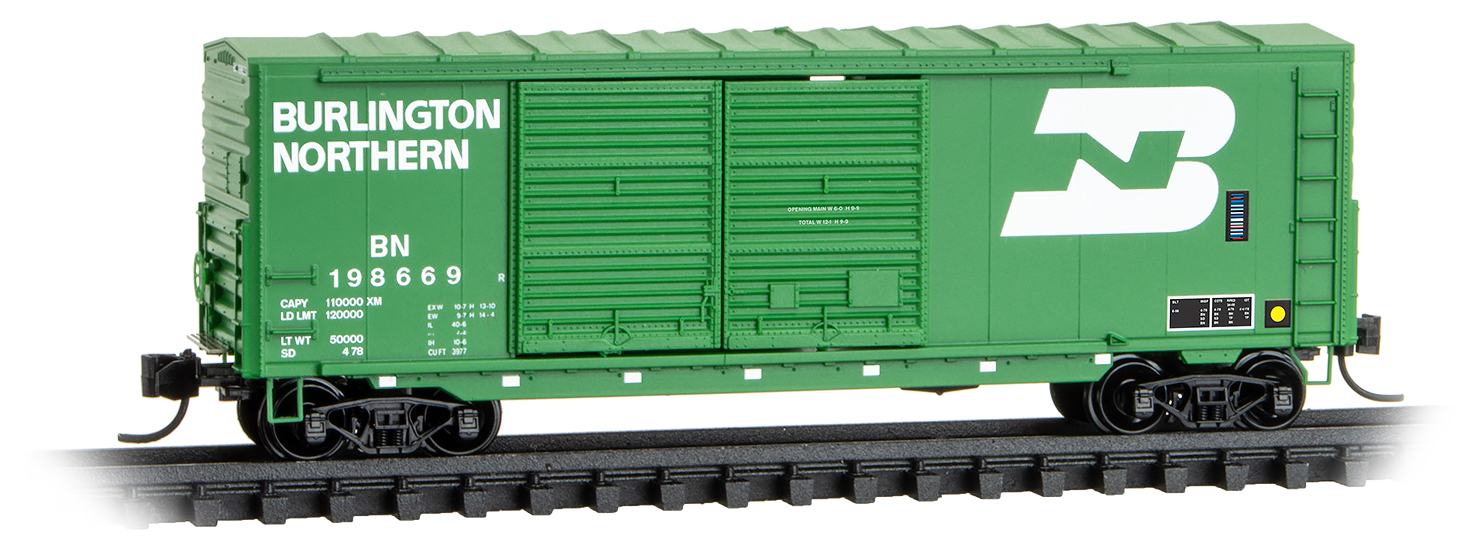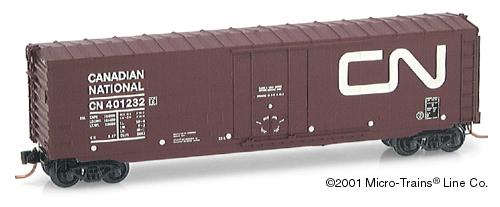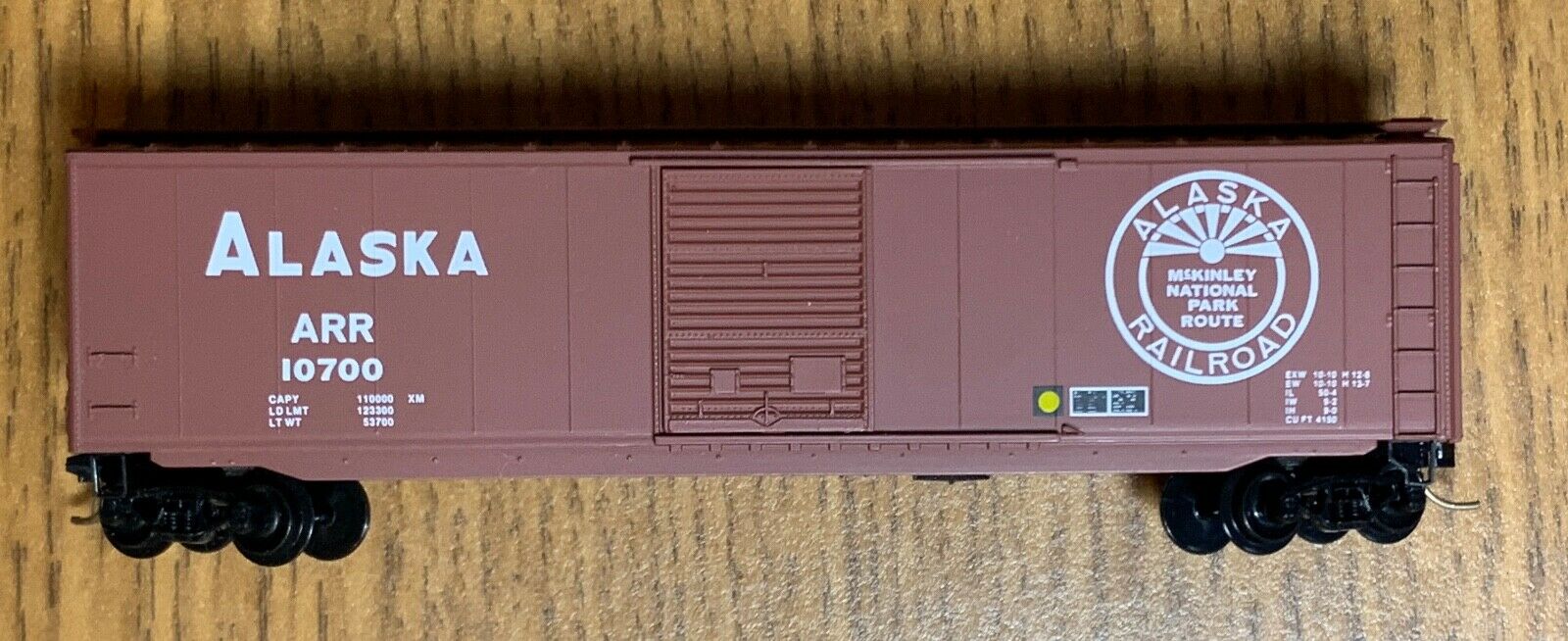Model Information: Some features include: Realistic design adhering to the prototypes. Proper prototype ride height. Multiple car numbers with sharp lettering.
Lumber loads - appropriate for the 1950s era railroading, and ones good for the 1960s until now.
Since the post war period in U.S., there was a remarkable housing boom especially in Southern California. Getting lumber from the lumber mills in the Pacific Northwest* to the lumber yards across the nation became a little bit of a challenge due to a shortage of usable equipment. Solid trains of lumber and large cuts of lumber-carrying flat cars were the norm. A common sight in the west were witnessing solid Southern Pacific (SP) trains of lumber crawling up the Tehachapi grade at a snails pace with engines whining at run 8 - or just empty strings of flat cars returning from southern California winding through the mountain passes on their way back to the Willamette Valley. These solid empty trains were designated by SP as 'XMUG' for the abbreviation for Empty Eugene (Eugene, OR). Further, solid cuts of lumber cars from the Willamette Valley headed east with SP partner roads like Northern Pacific - Great Northern - Burlington Northern and Union Pacific to name a few.
Since the post war period in U.S., there was a remarkable housing boom especially in Southern California. Getting lumber from the lumber mills in the Pacific Northwest* to the lumber yards across the nation became a little bit of a challenge due to a shortage of usable equipment. Solid trains of lumber and large cuts of lumber-carrying flat cars were the norm. A common sight in the west were witnessing solid Southern Pacific (SP) trains of lumber crawling up the Tehachapi grade at a snails pace with engines whining at run 8 - or just empty strings of flat cars returning from southern California winding through the mountain passes on their way back to the Willamette Valley. These solid empty trains were designated by SP as 'XMUG' for the abbreviation for Empty Eugene (Eugene, OR). Further, solid cuts of lumber cars from the Willamette Valley headed east with SP partner roads like Northern Pacific - Great Northern - Burlington Northern and Union Pacific to name a few.
Road Name History: Born in 1923 with the consolidation and connection of the Tanana Valley and Alaska Northern railroads, the line was owned by the Federal Government (under the Department of the Interior) from the outset, later becoming the responsibility of the Department of Transportation in 1967. In the mid-80s it was sold to the State of Alaska.
The Alaska Railroad links Anchorage with the port of Whittier and Seward to the south, and Fairbanks and environs to the north. Total mileage is about 525 putting it between Bangor & Aroostook and New York Ontario & Western in relative size. Alaska does run its own passenger service over the length of the railroad. Although the Alaska Railroad is disconnected from the rest of the North American rail network, they do interchange with other railroads. A trio of sea-going barges ferry rail cars from the port of Whittier to Prince Rupert, British Columbia, and Seattle, Washington. ARR had collected a fleet of Alco RS-1s (and a few RSD-1’s) with cowls, effectively making them cab units unique to this line. These were later replaced by second generation EMD power. The big power on the line is a fleet of 28 SD70MACs. A dozen of these are equipped with HEP for use in passenger service.
The port of Whittier is hemmed in by the ocean on one side and mountains on the other. A 2.5 mile single track tunnel is the only way out of the port. The line through the tunnel is paved like street trackage so that highway traffic can use the tunnel. It is a single lane so highway traffic going south enters from the top of the hour until quarter after. Northbound traffic enters from the bottom of the hour until 45 after the hour. Trains get priority and proceed as soon as traffic has cleared.
The Alaska Railroad links Anchorage with the port of Whittier and Seward to the south, and Fairbanks and environs to the north. Total mileage is about 525 putting it between Bangor & Aroostook and New York Ontario & Western in relative size. Alaska does run its own passenger service over the length of the railroad. Although the Alaska Railroad is disconnected from the rest of the North American rail network, they do interchange with other railroads. A trio of sea-going barges ferry rail cars from the port of Whittier to Prince Rupert, British Columbia, and Seattle, Washington. ARR had collected a fleet of Alco RS-1s (and a few RSD-1’s) with cowls, effectively making them cab units unique to this line. These were later replaced by second generation EMD power. The big power on the line is a fleet of 28 SD70MACs. A dozen of these are equipped with HEP for use in passenger service.
The port of Whittier is hemmed in by the ocean on one side and mountains on the other. A 2.5 mile single track tunnel is the only way out of the port. The line through the tunnel is paved like street trackage so that highway traffic can use the tunnel. It is a single lane so highway traffic going south enters from the top of the hour until quarter after. Northbound traffic enters from the bottom of the hour until 45 after the hour. Trains get priority and proceed as soon as traffic has cleared.
Brand/Importer Information: Wheels of Time was founded by Matthew Young in the fall of 1995. From an early age, Matthew has had a passion for trains, both in full-size and in miniature. His family frequently went out of their way so he could ride the train, or simply watch the action on the tracks. "On one occasion mom took us to San Francisco along the waterfront. Spotting a State Belt ALCo S-2 locomotive switching the wharves, I persuading my mom to follow it. I watched in wonder as I saw and heard the hit-cup sputtering of the ALCo engine as it revved-up to move railroad cars on and off the car float at Pier 43." Other early family experiences included watching Southern Pacific freight and Amtrak's San Joaquin Amfleet trains roll by as his family waited to be seated at Spenger's in Berkeley, which sat happily right next to the tracks. "My brother and I would shoot pictures of the trains with our Instantmatic 110 cameras, sometimes only getting the wheels or worse yet ... getting a real good close up of my big thumb."
Matthew and his brother built models of all kinds, but their model train career began in elementary school when they started making 3-D cardboard miniature trains from pictures found in the pages of Trains Magazine and Model Railroader Magazine. On a visit, many years later, with the late Richard Buike of Trackside Trains in Burlingame, California, the conversation turned to the lack of N-Scale passenger trains and how the few that existed didn't look right. "I told him right then and there that I was going to produce high quality, historically accurate passenger railroad cars. Even I was a little surprised when I said this." The first product was a 1950 Pullman-Standard "10-6" sleeping car made of brass. Wheels of Time became one of the first makers of historically accurate and realisticly detailed passenger train cars. At Wheels of Time, we research original equipment and recreate it with CAD software for production. We're lovers of history and sticklers for detail. On our line of Transit Motor Coaches (a fancy way of saying "buses"), even the destination *roll* signs are historically accurate. Be sure to check out all our beautiful and accurate products. We hope you'll come to share our passion for trains, here recreated in miniature. At Wheels of Time, you get to take home a piece of a fascinating history.
Wheels of Time manufactures historically accurate model trains, vehicles, and model railroad accessories with a real *wow* factor. Our obsession with detail and historical accuracy is reflected in our exceptional design and production: hold a Wheels of Time model in your hand and you'll be tempted to say, 'It's the real thing!'
Matthew and his brother built models of all kinds, but their model train career began in elementary school when they started making 3-D cardboard miniature trains from pictures found in the pages of Trains Magazine and Model Railroader Magazine. On a visit, many years later, with the late Richard Buike of Trackside Trains in Burlingame, California, the conversation turned to the lack of N-Scale passenger trains and how the few that existed didn't look right. "I told him right then and there that I was going to produce high quality, historically accurate passenger railroad cars. Even I was a little surprised when I said this." The first product was a 1950 Pullman-Standard "10-6" sleeping car made of brass. Wheels of Time became one of the first makers of historically accurate and realisticly detailed passenger train cars. At Wheels of Time, we research original equipment and recreate it with CAD software for production. We're lovers of history and sticklers for detail. On our line of Transit Motor Coaches (a fancy way of saying "buses"), even the destination *roll* signs are historically accurate. Be sure to check out all our beautiful and accurate products. We hope you'll come to share our passion for trains, here recreated in miniature. At Wheels of Time, you get to take home a piece of a fascinating history.
Wheels of Time manufactures historically accurate model trains, vehicles, and model railroad accessories with a real *wow* factor. Our obsession with detail and historical accuracy is reflected in our exceptional design and production: hold a Wheels of Time model in your hand and you'll be tempted to say, 'It's the real thing!'
Item created by: nscalestation on 2017-05-07 11:20:31
If you see errors or missing data in this entry, please feel free to log in and edit it. Anyone with a Gmail account can log in instantly.
If you see errors or missing data in this entry, please feel free to log in and edit it. Anyone with a Gmail account can log in instantly.


